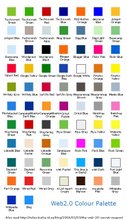
The future social habits of Facebookers
Living, playing hey even ‘making out’ (both in the American 'pashing' overtone to the more British undertone of finding your own way) on SNSs has had unexpected consequences and influences in social life. More specifically it has been possible to see how the politics of social contact have changed as social networking went from connecting to Facebook friends, to peers, family and anyone.
Some of the implications of the use of such social resources hold particular opportunities between what can vary as proactive and defensive types of social engagement. Perhaps then we are entering a world that is informed by our social presence that affords new forms of social exclusion in the changing scape of Internet spaces.
Take for example any vague notions of attachment that you used to have to your email account. You didn’t have any? No neither did I. But pause for a moment. Reflect on the attachment and value that you hold of your Facebook account. Imagine if over night you were denied entry to all your connections and networks. Scary stuff. Perhaps more debilitating than losing a mobile phone and sim, or forgetting the password to an email account Facebook represents in a very emotive way not only the points of contact to others, but the ‘keep sakes’ and trails of communication as they have emerged from just one poke or wall post. These (sometimes very personal) precious instances hold an important place for You. Popular commentary in the media has debated that Facebook is ‘bad for the health of friendships’ as they damage the time spent together. More damaging would be the loss of such a resource and ability to instantly (and intuitively) connect, communicate and converse with one another. It used to be the case that one would ‘log on’, ‘enter’, ‘exit’ and interact only ‘within’ the gated walls of anyone SNS. In today’s Technology Guardian Kate Bevan speculates as to whether Friends Connect by Google that allows users to link all '(...) their stuff’ back to social networking profiles will be the downfall of Facebook. Clearly she hasn’t played around enough with Facebook’s Share amongst other applications that already congregate the latest moves and shakes of users.
The consequences for shared interactive flows of communication? Instead of being more ‘fragmented’ and ‘alone’ connections will be seduced by the sophisticated levels of immersion and convergence of all networking sites and user identities. Increasingly flows will overlap. This might sound repetitive, but it is worth drawing distinction between the more hungry side of Web 2.0 that will evolve into Web 3.0. A space from which one is never disconnected, and can think and feel enough to foresee for you what you will be interested in. Most importantly a Web 3.0 will continue to share what your friends are up to, live, as it happens in real time. Ultimately then things become more compact. More real. More about You.
Image: uwadmnweb


No comments:
Post a Comment